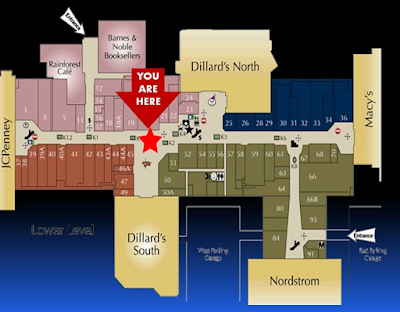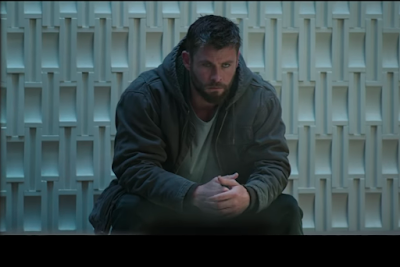The Hierarchy of Resiliency - Foundation and Phase 0
Establish Baseline (You are here)
Resiliency
General Physical Preparedness
Foundation
Counseling
Sleep
Mindfulness
Time Management
Preparation for Phase 1
“If I only had an hour to chop down a tree, I would spend the first 45 minutes sharpening my axe.” – Abraham Lincoln.
The baseline level of the hierarchy of resiliency is necessary to develop a solid foundation to set us up for success in the following levels.
If we use the metaphor of a journey it is hard to plot your course if you don't know where you are starting from.
You are here
How do you find where you are? How to you determine your baseline resiliency? You can take ACE / PCE resiliency tests on line. They consist of 15 - 20 questions regarding life experiences you encountered before you were 18 years old. If your numbers indicate, and you are not currently receiving counseling, finding and speaking with a councilor is your first step.
A side quest, if you will, for the TYR project and this blog is to destigmatize mental health treatment. In the upper mid-west of America if a Law Enforcement Officer sought out help from a personal trainer to get into better shape there is no shame associated with that. That Officer does not feel the need to keep it secret. They never have the thought that I will lose my job or specialty position if it is discovered that I got help maintaining my health. More than likely they brag about it and receive positive social feedback for the effort. If that same Officer sought out help from a councilor for their mental health they absolutely still have those fears.
The next level of the resiliency hierarchy is regular exercise. To maximize the benefits of exercise next, it is important to understand where we are now (you are here on the map).
How to we determine our baseline physical fitness / general physical preparedness? There are plenty of baseline pt tests you can find online. If you are reading this blog I imagine you are a martial artist, interested in personal protection, a force professional, or some combination of the above. You can click the link for tests relevant to the physical requirements / standards for those goals.
Keck - O - Meter Tests
Now that we know where we are, we can start developing the foundation on which we will build our resiliency pyramid.
The next step is getting sufficient sleep.
This mortal form grows weary...
What is sufficient sleep? Throughout the TYR project we will discuss the idea of minimum effective dose.
Why is this important - especially for folks who may have a wrestler's live in the grind mind set?
Well, if working out three times a week is good for your physical and mental health, then working out six times a week is twice as good right? It is just simple math! If training your resilience is causing more stress than it is reliving it is counter productive and detrimental to you goals (making you less resilient)
Finding the minimum effective dose (for you) is a way to work smarter not necessarily harder.
There are a lot of things we need to accomplish. There are many things competing for our time and attention, and we only have so much energy to devote to all of these things. The minimum effective dose is the amount of time / effort required to achieve the desired effect.
What is the MED for sleep?
Most adults need 7 to 9 hours, although some people may need as few as 6 hours or as many as 10 hours of sleep each day.
Like Honest Abe spending time sharpening his axe before he cuts down a tree (or vampire) I suggest allotting some of your sleep time to sleep hygiene to get the maximum restorative benefits of sleep
What is sleep hygiene? Like shower before bed?
Good sleep habits (sometimes referred to as “sleep hygiene”) can help you get a good night’s sleep.
Some habits that can improve your sleep health:
- Be consistent. Go to bed at the same time each night and get up at the same time each morning, including on the weekends
- Make sure your bedroom is quiet, dark, relaxing, and at a comfortable temperature
- Remove electronic devices, such as TVs, computers, and smart phones, from the bedroom
I'm not taking the TV out of my room, and usually the last thing I do before I go to bed is set the alarm on my phone. This has to work in the real world.
So say I have 8 hours in which I can sleep. The first hour is quiet, dark, and relaxing. Maybe reading a book to help turn off the thoughts of the day. Then seven hours of quality sleep. I would argue that 6 hours of quality sleep are better than 8 hours of restless / subpar sleep.
I was talking to guys on the tactical team about this. They all made jokes and gave reasons why they can't. I understand their points, and their skepticism. This is difficult, and shift work makes it even harder. It isn't easy, but we need to make the attempt. We may not always succeed, but it won't be from lack of trying. There are many things competing for our time and attention, and we only have so much energy to devote to all of these things. Sleep / restoration is not selfish. Just like the flight attendant instructs - in case of an emergency put your mask on first - then you can help others, you will be unable to give your time and attention to anything if you don't take care of yourself.
Pre-sleep "rituals" may also be an excellent time to incorporate mindfulness into your daily schedule.
Mindfulness doesn't need to be any sort of woo woo Zen magic spell casting. It is any activity that quiets your mind, and shut out external stimulus. It can be a simple as a few minutes of "tactical" or box breathing
Time management
Without this it is very easy for the other levels of the pyramid to feel overwhelming. Make time to do what is needed. Do what you can with the time you have. Change as circumstances and priorities change.
You can click the link for a basic time management spreadsheet. For phase 0 your time management needs to include sleep, mindfulness, and in preparation for phase 1, three days a week for exercise. Your first three work outs can various baseline physical preparedness tests.
This is the foundation. This is the base level.
The world may knock you back to this level from time to time. But the stronger you have developed you resiliency (the further up the pyramid you have climbed ) the harder it will be to knock you down and the easier it will be to get back up
“The world ain’t all sunshine and rainbows. It is a very mean and nasty place and it will beat you to your knees and keep you there permanently if you let it. You, me, or nobody is gonna hit as hard as life. But it ain’t how hard you hit; it’s about how hard you can get hit, and keep moving forward. How much you can take, and keep moving forward. That’s how winning is done. Now, if you know what you’re worth, then go out and get what you’re worth. But you gotta be willing to take the hit, and not pointing fingers saying you ain’t where you are because of him, or her, or anybody. Cowards do that and that ain’t you. You’re better than that!” ~ Rocky Balboa
Preparation
In the baseline portion we found out where we are. Continuing with the metaphor of a journey it is also hard to plot your course if you don't know where you want to go.
So...What are your goals? How do you plan to get there?
If you'd like some help figuring that out, you can click the link bellow for some goal setting / action plan work sheets.
Work Sheets
Phase 0 Summary
Establish Baseline (You are here)
Action Steps:
Resiliency - Take ACE / PCE Tests
General Physical Preparedness - Take PT tests
Foundation
Action Steps:
Counseling - find a trusted resource
Time Management
Sleep - schedule 6 - 10 hours a night
Mindfulness - schedule a few minutes every day
Find three days a week to work out during the next phase
Preparation for Phase 1
Action Steps:
Set goals
Develop action plan
The Budo Blog will return...
Train hard, train smart, be safe







Hmm, apparently I'm at the lower end of "high risk" on the ACE/PCE scale. Didn't realise, so thanks for including that in the baseline assessment. Taking some steps to address that, but might need to reassess options.
ReplyDeleteSleep is ok, not great but ok. Mindfulness could use a little work, lack of routine lately making a difference there. Exercise - I'm happy with my current physical state, but a bit more structure will help. Looking at scheduling to improve that now.